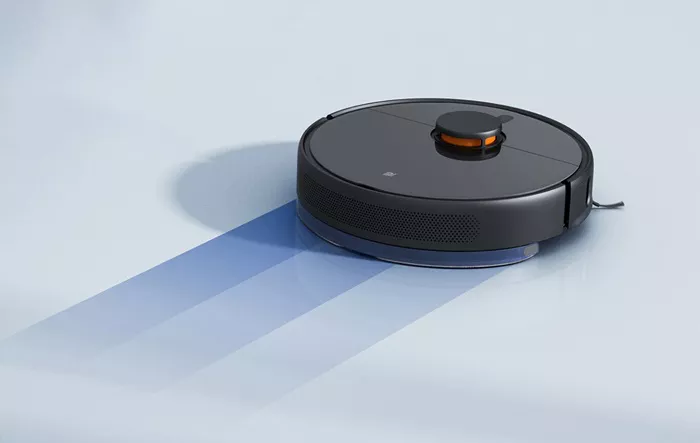The sweeping robot developed by China is changing the market power structure. Chinese products have achieved new evolution, equipped with a robotic arm that can sweep the floor and collect items, and a robotic foot that can cross stairs. The “Roomba” of iRobot, which has always been in the leading position in the United States, has been forced into trouble due to the lack of obvious innovation.
Use artificial intelligence (AI) to identify what the items dropped on the floor are, and then put the toys in the toy box, put the socks in the laundry basket, and move different items to the corresponding places…
Beijing Stone Century Technology Company (Roborock) demonstrated a sweeping robot with a robotic arm at the technology exhibition “CES” held in Las Vegas, USA in January. The product can pick up objects with a maximum weight of 300 grams with a robotic arm, and can start the sweeping robot at any time to clean the room even if it is not tidied up.
The product will be available worldwide in 2025. It is said that it can currently identify 108 types of objects, and users can set up to 50 additional items through a dedicated APP.
There are major doubts about whether iRobot can continue to operate
The power structure of the sweeping robot market has begun to change. In the field of sweeping robots, iRobot, which produces Roomba, has always been in a leading position, but is now under attack from Chinese manufacturers. According to data from Euromonitor, a British research company, Roomba’s global market share will be 22% in 2024, down from 35% in 2015.
In its financial report for October to December 2024 released on March 12, iRobot wrote in the form of “additional information” that “there are significant doubts about whether the company can continue to operate for at least 12 months (going concern).”
The designated price system is counterproductive
In Japan, where Roomba accounts for 70% of the market share, Chinese manufacturers are also taking the offensive. China’s Ecovacs Robotics is selling products with mopping and automatic garbage collection functions at a price of 43,780 yen. It is cheaper than Roomba, which has the same functions and sells for 59,200 yen. Due to the impact of price competition, iRobot’s sales in the Japanese market fell 34% year-on-year from October to December 2024.
Related topics:

